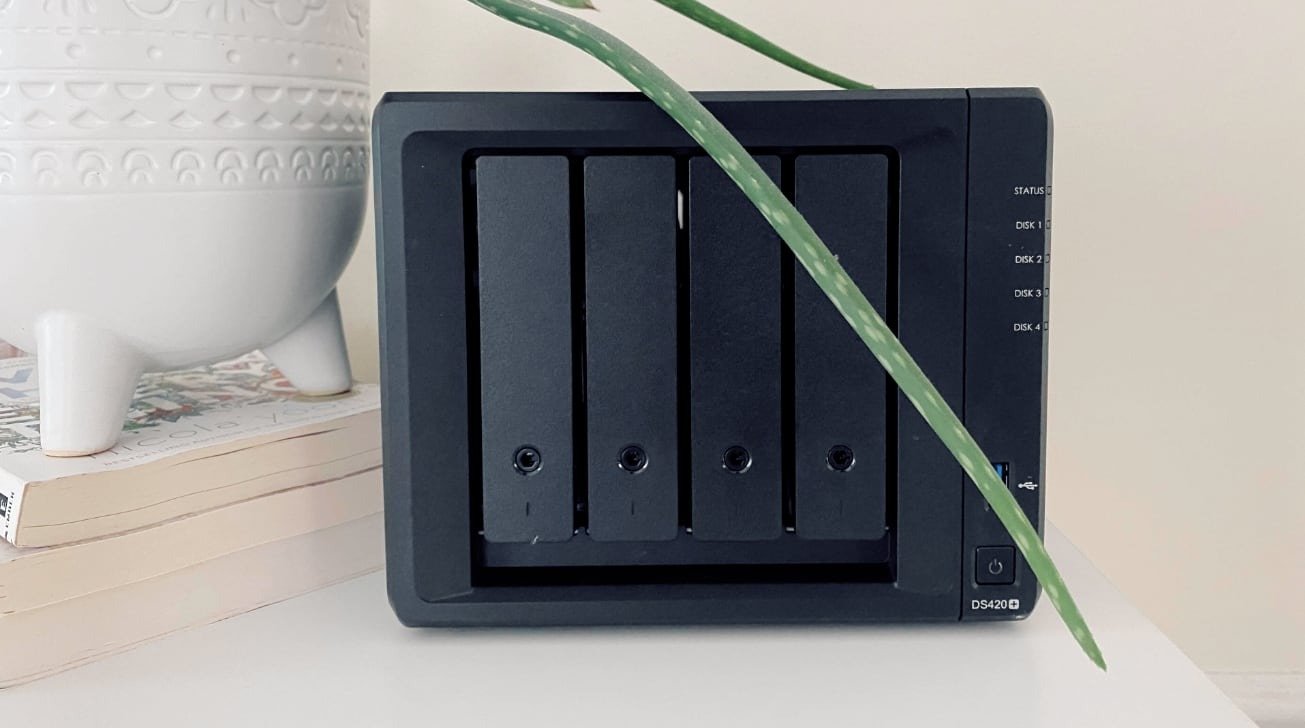Synology partially drops support for third-party drives in 2025 NAS range
Synology is pushing for consumers to buy its own brand of hard drives for its newest NAS appliances, with only certified drives getting the full suite of software support.

Older Synology NAS devices won't be affected by the drive changes
The cost of a network-attached storage (NAS) device could be split into two components, with the NAS itself as one part, while the drives that fill it make up the second. At higher capacities, the drives can be the more costly element to acquire, and often leads to users shopping around for deals on hard disks.
It appears that Synology is keen to earn more from users by getting them to purchase its own line of hard drives to go with the NAS.
Spotted by Hardwareluxx.de and confirmed by a press release on Synology's German-language website, the NAS maker is making changes to the way its drives software operates. For some models of NAS released in 2025, it will have a considerable preference to the use of Synology-branded or Synology-certified drives.
Synology says that its Plus series models shipping in 2025 will behave differently for third-party drives that haven't got the Synology certification. Officially sanctioned and deemed compatible drives will work with all of the features and support functions the NAS will offer, but others will not.
The limits of uncertified drives will include restrictions on pool creation, with them also missing out on volume-wide deduplication, lifespan analysis, and automatic hard drive firmware update features. The loss of these features for third-party drives could cause problems, such as users being unaware of issues until it's too late and data has already been lost.
More warnings, more profits
While these features won't be available to uncertified third-party drives, the drives will still work with a NAS as storage. Warnings will be displayed about support, which could scare users into buying Synology's drives, but they should otherwise work fine.
The company adds that there won't be any changes to Plus models released in 2024 or in earlier years, with the exception of XS Plus models and rack-based editions.
The reason for the changes is put forward by Synology as a result of the success of its High-Performance series of drives. It's claimed that this will grant "the highest levels of security and performance, while also offering significantly more efficient support."
An alternative and fairly obvious reason for doing so is to earn more revenue from consumers kitting out the NAS. Rather than getting cheaper drives from another supplier, the changes will probably influence users into buying Synology's drives, so that they don't miss out on safety features.
Read on AppleInsider

Comments
Hard drives are no longer "general purpose" like they were in the old days. Mechanical design and firmware are now optimized for all kinds of use cases: NAS / SAN, NVR, desktop PC, workstation, various types of servers, etc. Don't get me started on SMR vs CMR. Way too many users buy a NAS and then throw in whatever drive is cheap, or whatever drive has the biggest capacity, without any understanding or consideration of fitness for purpose. And when the drive is slower than trash or fails early, who do people blame? Themselves? Ha ha ha ha ha, no.
It looks like you can use any drive that Synology has tested / certified, and their tested / certified list generally contains virtually all of the makes and models that make sense to use. My only gripe is that it's often a few months behind what's released on the market. I don't have much trouble predicting what will and won't wind up on there, but that may be a hassle for people who want something that just came out. If you check the specs very, very, very carefully it's not exactly rocket science to figure out, but you have to be precise about it. Unless you have a lot of technical knowledge about hard drives and are excellent with details, just stick to their list.
I wish Synology HDDs were more cost-competitive. The quality is solid, but the markup is a bit much in a market that's pretty tight. Their SSDs are better in this regards and I almost always use those.
Personally, have been bitten by Western Digital cutting corners, I view this as potentially similar to the "Apple tax" on memory but more understandable. People may kvetch about it, but it's hard for Synology to not lose their brand reputation if Western Digital can't be trusted.
Another key consideration IMO is to purchase drives from authorised resellers or trusted vendors. There is a lot of fraud in the market with re-badged, refurbished or outright different hardware under the label.
I use Toshiba N300 drives (RAID1) which some consider noisy but they have been ultra reliable for me.
The supported drive list tends to be pretty extensive. Best not to panic until the new models drop and we can see that list.